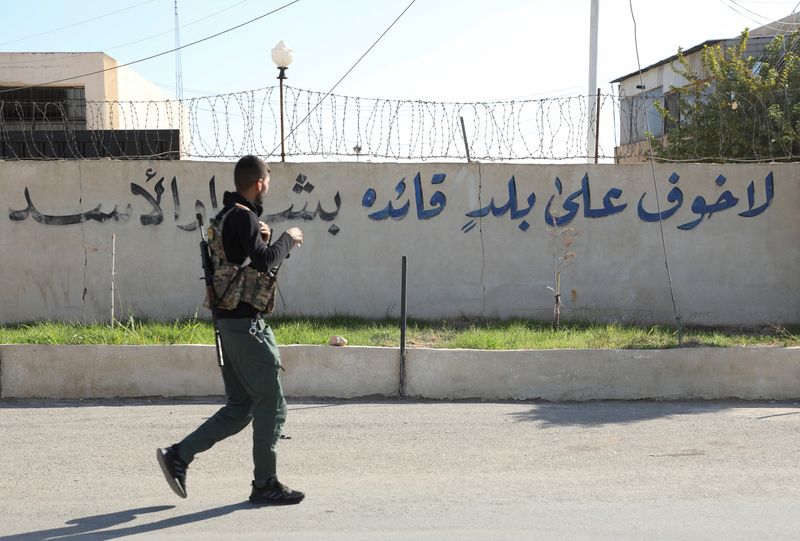By Anthony Deutsch
THE HAGUE (Reuters) -The downfall of Syria's Bashar al-Assad, found to have used chemical weapons against his own people on multiple occasions during the civil war, creates an opportunity to rid the country of banned munitions, diplomatic sources said on Monday.
The Organisation for the Prohibition of Chemical Weapons (OPCW) said it was following the situation in Syria with "special attention" to chemical weapons-related sites and had reminded Syria, through its embassy, of its continued obligation to declare and destroy all banned chemical weapons.
A team at OPCW has spent more than a decade trying to clarify what types of chemical weapons Syria still possesses, but has made little progress due to obstruction by Assad's government, it said.
"To date, this work has continued, and the Syrian declaration of its chemical weapons programme still cannot be considered as accurate and complete," the OPCW statement said.
A diplomatic source said Assad's government had been "playing cat and mouse with us for years" and that "we are convinced that they still had an ongoing programme."
"It costs millions and millions of dollars without making any progress," said the source, speaking on condition of anonymity. "So it really is a great opportunity now to get rid of (chemical weapons) for good. This is the moment."
Security guarantees will need to be arranged before any deployment by OPCW inspectors. That would require contacting new power brokers in Syria, possibly rebel forces in the alliance that toppled Assad, such as Hayat Tahrir al-Sham, a former al Qaeda affiliate labelled a terrorist group by some governments.
Past missions have not been free of risk. Members of a United Nations-OPCW mission to Syria were hit by explosives and AK-47 fire while trying to reach the site of a chemical attack in the northern town of Kafr Zita in May 2014.
Assad's government and its Russian allies always denied using chemical weapons against opponents in the civil war, which erupted in March 2011.
Three investigations - a joint U.N.-OPCW mechanism, the OPCW's Investigation and Identification team, and a U.N. war crimes investigation - concluded that Syrian government forces used the nerve agent sarin and chlorine barrel bombs in attacks during the civil war that killed or injured thousands.
A French court issued an arrest warrant for Assad which was upheld on appeal over the use of banned chemical weapons against civilians.
EVIDENCE
Syria's undeclared chemical weapons pose "a proliferation risk," U.S. Ambassador to the OPCW, Nicole Shampaine, said in a statement on Monday. "We hope that developments in Syria in the last several days will lead to ...Syrian compliance with its international obligations."
A special session of the OPCW's executive council was scheduled for Thursday.
Syria declared 1,300 tons of banned chemical weapons after joining the OPCW in 2013. The weapons were destroyed, but weapons inspectors have since found evidence of an ongoing programme that violated the 1997 Chemical Weapons Convention overseen by the OPCW.
The OPCW has conducted 28 rounds of consultations with Assad's government, but a list of unexplained inconsistencies has only grown.

A recent assessment said 19 outstanding issues included "potentially undeclared full-scale development and production of chemical weapons at two declared chemical weapons-related facilities," OPCW chief Fernando Arias said in November.
Among thousands of victims of suspected chemical weapons attack were more than 1,000 killed in a sarin gas attack on Aug. 21, 2013 in the Damascus suburb Ghouta, and around 100 killed in an April 4, 2017 gas attack on Khan Sheikhoun in northern Syria. The systematic use of chlorine barrel bombs has killed and injured hundreds more, the OPCW has found.